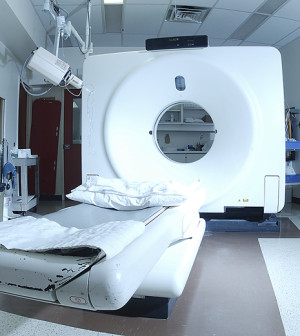- Could Your Grocery Store Meat Be Causing Recurring UTIs?
- Are You Making This Expensive Thermostat Error This Winter?
- Recognizing the Signs of Hypothyroidism
- 10 Strategies to Overcome Insomnia
- Could Artificial Sweeteners Be Aging the Brain Faster?
- Techniques for Soothing Your Nervous System
- Does the Water in Your House Smell Funny? Here’s Why
- Can a Daily Dose of Apple Cider Vinegar Actually Aid Weight Loss?
- 6 Health Beverages That Can Actually Spike Your Blood Sugar
- Treatment Options for Social Anxiety Disorder
Space Reshapes Astronauts’ Brains: Study

Astronauts’ brains change shape while in space, a new study indicates.
Brain scans of astronauts before and after spaceflight found their brains compress and expand during space missions.
The findings could lead to new ways to treat health conditions that affect brain function, according to the University of Michigan researchers.
The NASA-funded study included 12 astronauts who spent two weeks on the Space Shuttle and 14 who spent six months on the International Space Station.
MRIs showed that all had increases and decreases in gray matter in different parts of the brain. Those changes were greater the longer the astronauts spent in space.
“We found large regions of gray matter volume decreases, which could be related to redistribution of cerebrospinal fluid in space,” principal investigator Rachael Seidler said in a university news release.
“Gravity is not available to pull fluids down in the body, resulting in so-called puffy face in space,” explained Seidler, a professor of kinesiology and psychology. “This may result in a shift of brain position or compression.”
The study also found increases in gray matter in brain regions that control leg movement and process sensory information from legs. The researchers theorized this might be caused by the brain learning how to move in microgravity.
These changes were greater in space station astronauts because their brains were constantly adapting to their new environment, the research team speculated.
Seidler said she observed similar changes in a study on long-term bed rest. In that work, volunteers spent up to three months in a downward tilted position, and their brains shifted up.
The structural brain changes in astronauts could be due to new connections between neurons, Seidler said. She’s leading a long-term study to examine how long these brain changes last and how they affect mental and physical abilities.
The study was published recently in the journal Nature Microgravity.
More information
NASA has more on the effects of space flight.
Source: HealthDay
Copyright © 2026 HealthDay. All rights reserved.










